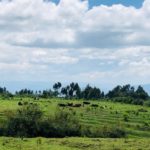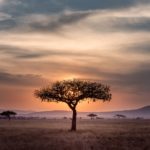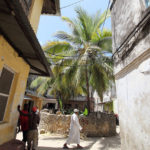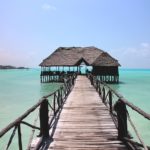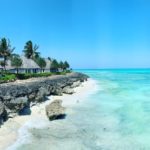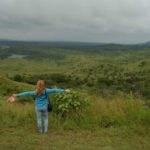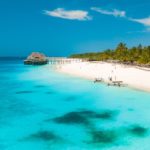Zanzibar Tourism: Describing My Home to the People of Zanzibar
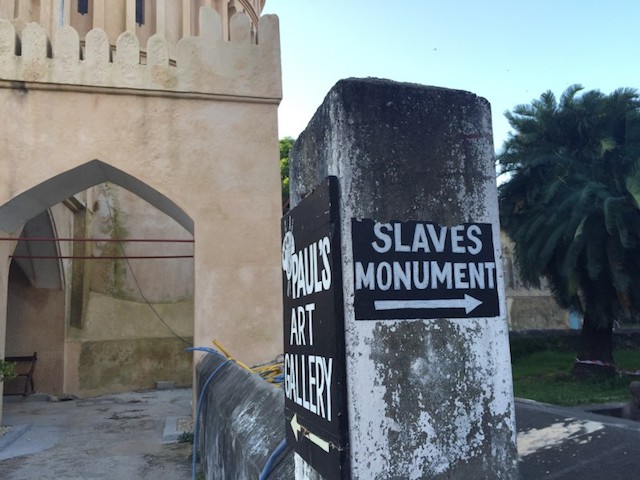
“You have to learn Swahili, my friend.”
“I am, slowly. Pole, pole.”
“Hmm.”
It’s the third time I’ve had this conversation today, and it’s only 4:00. I sit outside St. Monica’s hostel, Christ Church Cathedral rising up behind me, 19th century dungeons from Zanzibar’s notorious slave market sitting about a yard beneath my feet.
Elvis lounges across from me—not that Elvis. And yes, it is his real name. For the past two weeks, I’ve visited the church every day after work, conducting field research for my senior thesis. By now, I’ve met all the tour guides. Sitting outside, waiting for visitors to come asking for tours, we’ve discussed my research, my internship, my impressions of Stone Town, my abhorrent lack of Swahili—
He seems genuinely surprised that not all Americans are wealthy.
“You need to practice more. I think you should talk with us in Swahili.”
“I do. Habari gani.”
“Nzuri sana,” and he launches into a rapid sentence I have no prayer of comprehending, much less responding to. I look blankly at him. He is clearly disappointed.
“Where do you live in U.S.?”
“I’m from Michigan, but I live in Philadelphia for school.”
“Oh. So what is America like, generally?”
The phrasing is simple enough: what is America like, generally? But I find I have no words. What can I say, in this moment, to sum up my life? And not just my life, the lives of people and places I’ve only ever seen on TV. I run through the options mentally. Weather: it’s colder than here, but not everywhere. Actually, I think Michigan is hotter than Zanzibar at the moment. And Arizona is like a separate planet when it comes to climate, as is Florida, and Alaska. Education: it depends on your school, and your state, whether it’s private or public. Social life: My friends and I watch movies on Netflix. If that sums up America, I need to move.
“What do you mean? What about America?”
“Just generally. What are the conditions like?”
“The conditions? The living conditions?”
“Just life there, generally.” I’m reminded of an old story about a boy on the beach, who used a shell to empty the sea into his bucket. He was doomed and so am I.
“Well, Philadelphia has a lot of history. It’s where we signed the Declaration of Independence. But it’s expensive. To get a decent apartment near my school it can be over $1000 a month.” He raises his eyebrows.
“$1000 a month?” He looks at me suspiciously.
“Yeah, it’s crazy.”
“You know in Tanzania, there are many poor people.”
“Yes, I’ve seen that. In America too.”
“Really?” His eyebrows pull up again. He seems genuinely surprised that not all Americans are wealthy. I was prepared for this assumption. The Americans who visit Zanzibar most often are those who can afford the $2,000 flight, not to mention the accommodations, the tours, the time away from work and the luxury of a tropical vacation. There is no exposure to the 14 million people struggling for proper nutrition.
Zanzibar Tourism: Describing My Home to the People of Zanzibar
“Yes, of course.”
“From other places though.” He assumes that the poor in America must be the immigrants who are struggling to adjust, starting at the bottom rung of the fabled ladder.
“From other places, but from America too. It can be difficult to break out of. If you don’t have enough to eat or a safe place to live, then you can’t focus on education. And without education, it’s hard to get a good job…It’s all a cycle.”
“Hmm. Are they black, or white, or what?” He tells me that he’s heard from African American tourists who complain about the government.
“Yeah, we’ve had some big issues lately.” Always, actually. I give him a basic description of the recent protests over police brutality and discrimination. Again, I feel the inadequacy of the seashell. I am a white, privileged woman from a small town made up of majority white, privileged people. I don’t know what it’s like to live with that kind of injustice, that fear threaded throughout daily life. So when Elvis asks me my opinion, what can I say? It’s wrong. That I know.
Storytelling, I’ve found, in novels, in movies, even in memories, is about carving out a shape.
“Do you have black friends?”
“Yes, a few at school.”
“What do they think of you?” He’s merciless.
“I don’t know. I’m not them. They probably think I don’t know much.”
And, based on this story I’ve just told him about my country, the place I’ve spent 21 years of my life, I don’t know much at all. In the midst of the unfamiliar, I’ve found that the familiar is perhaps just as incomprehensible. Maybe more so.
Storytelling, I’ve found, in novels, in movies, even in memories, is about carving out a shape. It’s the portion of the ocean that fits inside the seashell. Without those contours, there is no meaning. The water spills out.
I can tell a story about Zanzibar. It is different from any place I have ever encountered, yet, having met a handful of its people and navigated a small portion of its alleyways, I can tell a story. The parts I carve out are the parts that are new to me, fascinating to me. But even as I carve that story, I have to find a way, from literally several oceans away, to discover the parts of home that give it a shape and a meaning as well.
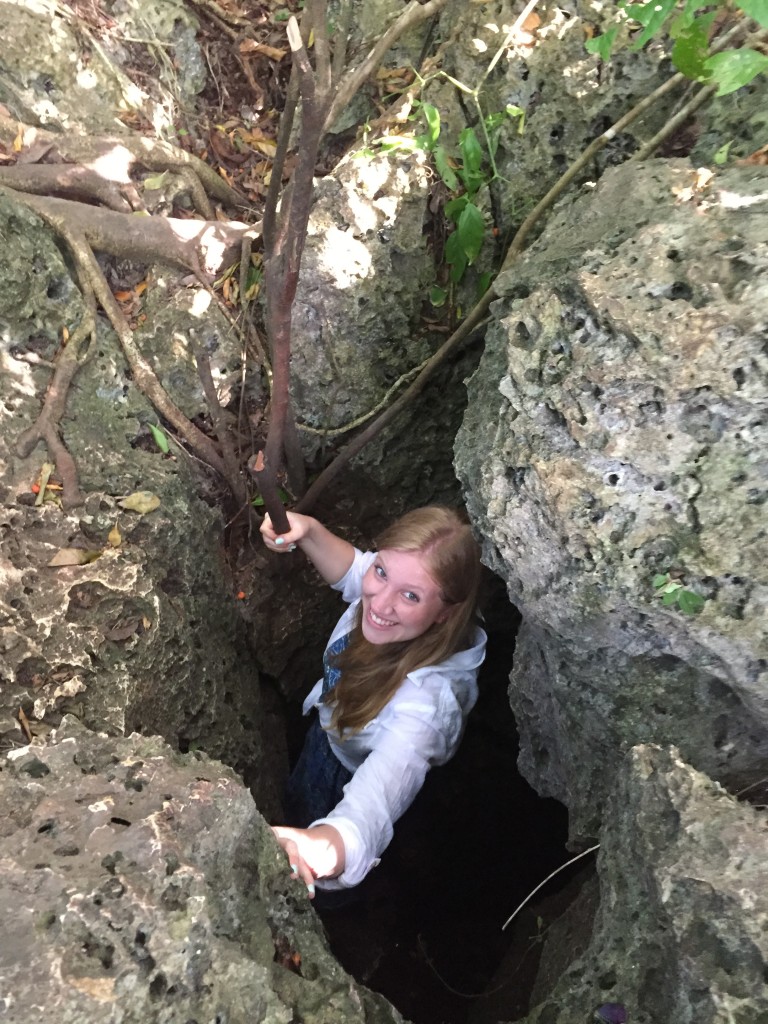
Zanzibar Tourism: Describing My Home to the People of Zanzibar photos by Katrina Marks.

